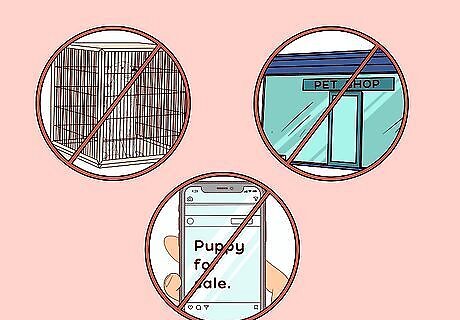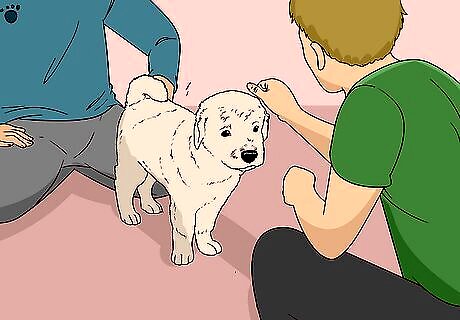
views
Why should I get my puppy from a trusted breeder?

A good breeder will be focused on helping you, not making money. This means that you’ll have an expert’s opinion on everything from training, to socializing, to the health of your new golden. Oftentimes, the breeder’s support and expert knowledge will be available to you throughout your dog’s life. A responsible breeder will have your puppy’s entire family history available, and they will have used that history to breed a dog that is as healthy as possible and the best possible representation of the breed. Your puppy will likely have a health guarantee. This means that if your puppy inherits an illness, the breeder will offer a refund. You’ll likely be introduced to your puppy’s parents. Your breeder will know their litters well. They'll advise you on your choice, depending on your needs and behavioral preferences. If something were to go wrong and you could no longer keep your puppy, it would likely have a safe home with its breeder. All in all, trustworthy breeders will have taken every necessary step to ensure each puppy is happy and healthy.
Why should I avoid puppy mills, pet shops, and online posts?

Poorly cared for puppies may face health and behavioral struggles. Puppy mills, pet shops, and online puppy sales (often posted by puppy mills) are motivated by money, not a genuine passion for breeding. Because of this, you can expect that each of these sources have cut corners. They won't have followed proper procedure that ensures your golden will be healthy, well-behaved, and standard in appearance. In addition to this, puppies from these sources are typically subjected to terrible, inhumane conditions at some point in the breeding process. In the long run, it's much better for you (and your future puppy!) if you go with a trusted breeder.
How can I find a trusted breeder?

It's best to get a referral through your local golden retriever club. When hunting for a breeder on your own, it can be difficult to differentiate between scammers, irresponsible breeders, and genuine, high-quality breeders. The Golden Retriever Club of America has locations all over the country and is made up of golden retriever enthusiasts motivated by a love of the breed. Choose the club closest to you, get in touch with a GRCA volunteer via the contact information on the their website, and speak to a volunteer about the best, ethical breeders in your area. You should also look for signs that your breeder is trustworthy. They should have medical clearances for your puppy’s parents as well as pedigrees of past generations in your puppy’s family. Find your nearest GRCA by visiting https://grca.org/about-grca/grca-clubs-map/.
What questions should you ask a breeder?

Ask questions about your puppy, its parents, and the breeder's operations. To get a sense of the trustworthiness of your breeder, your puppy’s health and personality, and what you can expect from the contract you have with your breeder, you’ll need to make sure you’ve gotten all the information you need through informed questions. For instance, you may want to ask for references, vaccine information, certifications for your puppy’s parents, health information on the rest of the litter, and information on your puppy’s veterinarian visits. Have the puppies been dewormed, spayed, and socialized? The answer to all three questions should be "yes." What guarantee do they provide along with the puppies? This refers to whether or not you will be compensated if the puppy falls ill. Do they belong to a breed club? This way, you can speak to their club as you would a reference. What have they been feeding the litter? It'll be crucial that you keep the puppy on the same diet for a few days after it's brought home. Do they offer support to the new owners of their puppies? It'll be helpful to know how much assistance your breeder offers with training and health concerns as the puppy grows up.
How can I avoid bad breeders?

Keep an eye out for common red flags. When looking out for responsible vs. irresponsible golden retriever breeders, you’re trying to avoid breeders that treat puppies poorly, breeders that don’t provide guarantees of safety, appearance, or behavior, and breeders that are looking to scam buyers. If they seem hesitant to or don’t allow you to visit your puppy or your puppies parents, that’s a red flag. This is a sign that their puppies’ environment may not be particularly healthy or clean. Responsible breeders know that puppies should stay with their mothers for eight weeks. If your breeder lets you pick up your dog before then, that’s a red flag. Good breeders care about their puppies’ future homes, so they’ll question you extensively. If your breeder asks you no or few questions, that’s a red flag. A bad breeder may have many puppies at once. When done properly, breeding is time consuming. A good breeder will have only a few puppies at a time.

















Comments
0 comment